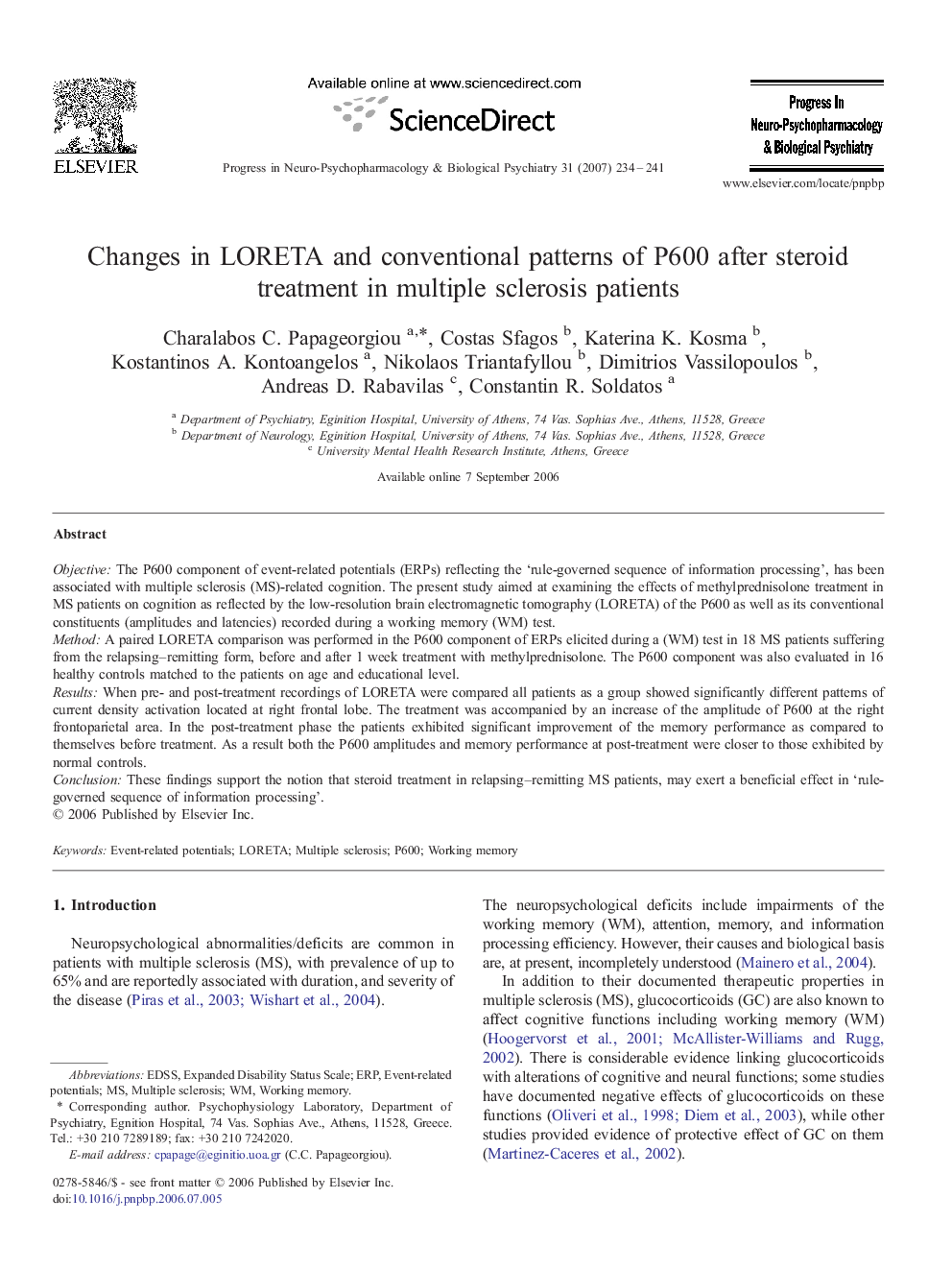| Article ID | Journal | Published Year | Pages | File Type |
|---|---|---|---|---|
| 2566036 | Progress in Neuro-Psychopharmacology and Biological Psychiatry | 2007 | 8 Pages |
ObjectiveThe P600 component of event-related potentials (ERPs) reflecting the ‘rule-governed sequence of information processing’, has been associated with multiple sclerosis (MS)-related cognition. The present study aimed at examining the effects of methylprednisolone treatment in MS patients on cognition as reflected by the low-resolution brain electromagnetic tomography (LORETA) of the P600 as well as its conventional constituents (amplitudes and latencies) recorded during a working memory (WM) test.MethodA paired LORETA comparison was performed in the P600 component of ERPs elicited during a (WM) test in 18 MS patients suffering from the relapsing–remitting form, before and after 1 week treatment with methylprednisolone. The P600 component was also evaluated in 16 healthy controls matched to the patients on age and educational level.ResultsWhen pre- and post-treatment recordings of LORETA were compared all patients as a group showed significantly different patterns of current density activation located at right frontal lobe. The treatment was accompanied by an increase of the amplitude of P600 at the right frontoparietal area. In the post-treatment phase the patients exhibited significant improvement of the memory performance as compared to themselves before treatment. As a result both the P600 amplitudes and memory performance at post-treatment were closer to those exhibited by normal controls.ConclusionThese findings support the notion that steroid treatment in relapsing–remitting MS patients, may exert a beneficial effect in ‘rule-governed sequence of information processing’.
